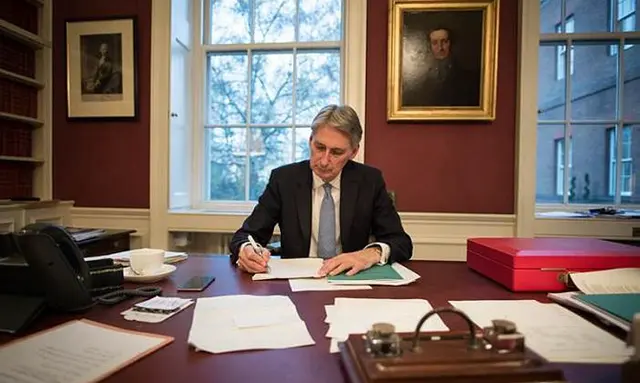Britain's Chancellor will say on Wednesday that he is raising the minimum wage and taking the edge off a benefits squeeze for low earners, but fixing the public finances will be a bigger priority as the country gets ready for Brexit.
In the first detailed economic policy announcement of the new government at 1230 GMT, Philip Hammond will focus on tackling a still large budget deficit and injecting dynamism into the world's fifth-biggest economy, his office said.
When he became Chancellor in July, a few weeks after the vote to leave the European Union, Hammond said Britain might need a "fiscal reset," raising the prospect of a big shift in economic policy towards more public spending or large tax cuts.
But so far, the economy has held up better than expected to the initial Brexit shock and Hammond has said he wants to keep his powder dry for tougher times that probably lie ahead as Britain proceeds with its divorce from the EU.
The Treasury said that the minimum wage, known as the National Living Wage, would rise to 7.50 pounds an hour from April. That is up from 7.20 pounds now, but represents only a small step towards an existing target of 9 pounds by 2020.
The Treasury also said in a statement that low-paid workers would lose tax credits at a slightly slower pace as their earnings rise, softening some of the impact of a sharp rise in inflation caused by the Brexit hit to the pound.
In another attempt to address the frustrations of "just about managing" families, many of whom voted for Brexit and who have been promised help by Prime Minister Theresa May, Hammond will take steps to make more homes available to low-income renters and buyers.
The government will earmark 1.4 billion pounds of new funding to help build 40,000 new homes over the next five years, the Treasury said. There will also be a crackdown on fees imposed on tenants, a bitter complaint of many renters.
The opposition Labour Party said the measures were "too little, too late" to help hard-up families, whose incomes have stagnated for a decade.
Torsten Bell, director of the Resolution Foundation, a think tank which focuses on issues facing low-earning households, said of the benefits change in a Tweet: "All support for just managing families is to be welcomed but after this small tweak they will still be the big losers over next few years."
(REUTERS)
 简体中文
简体中文




